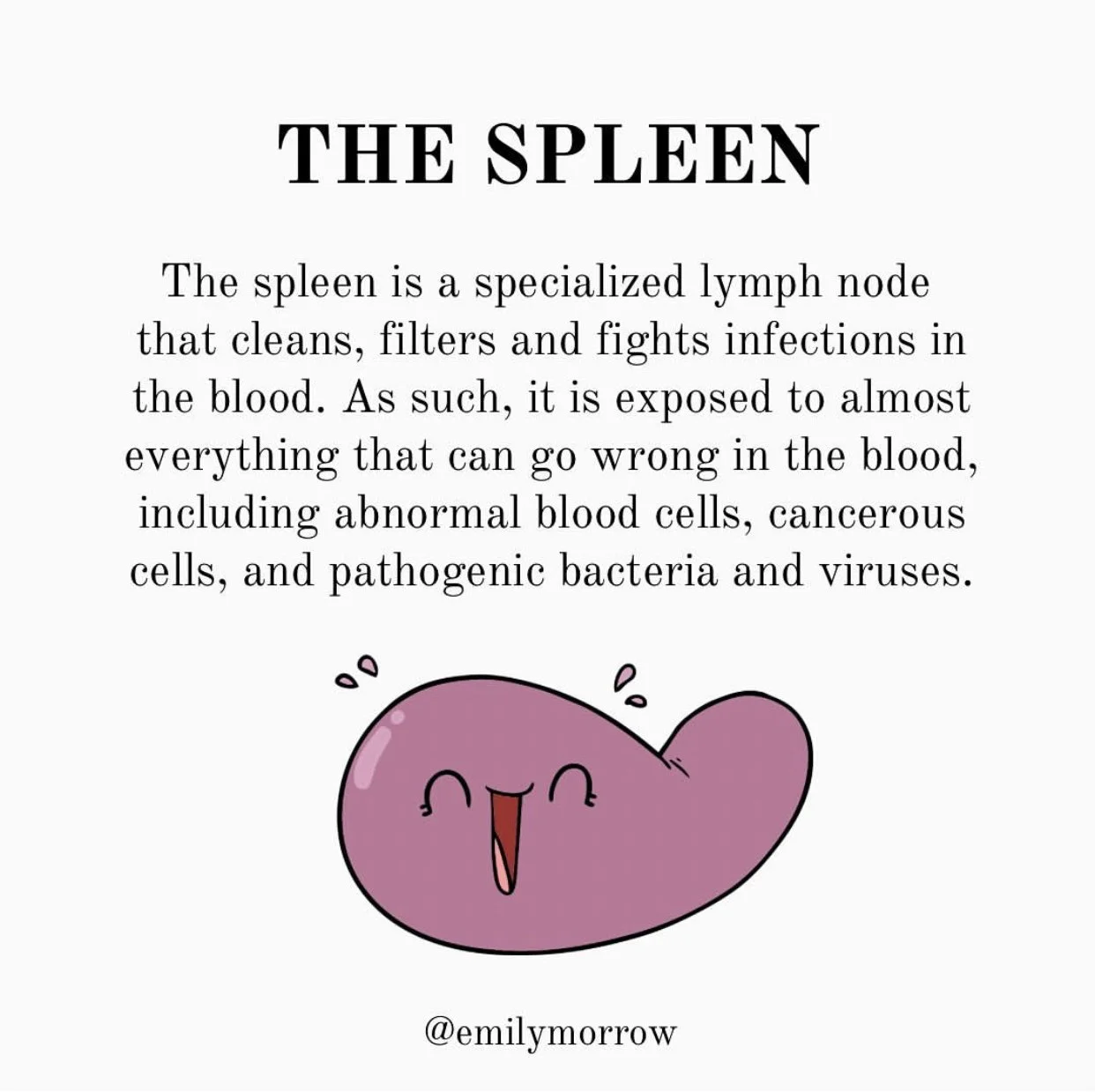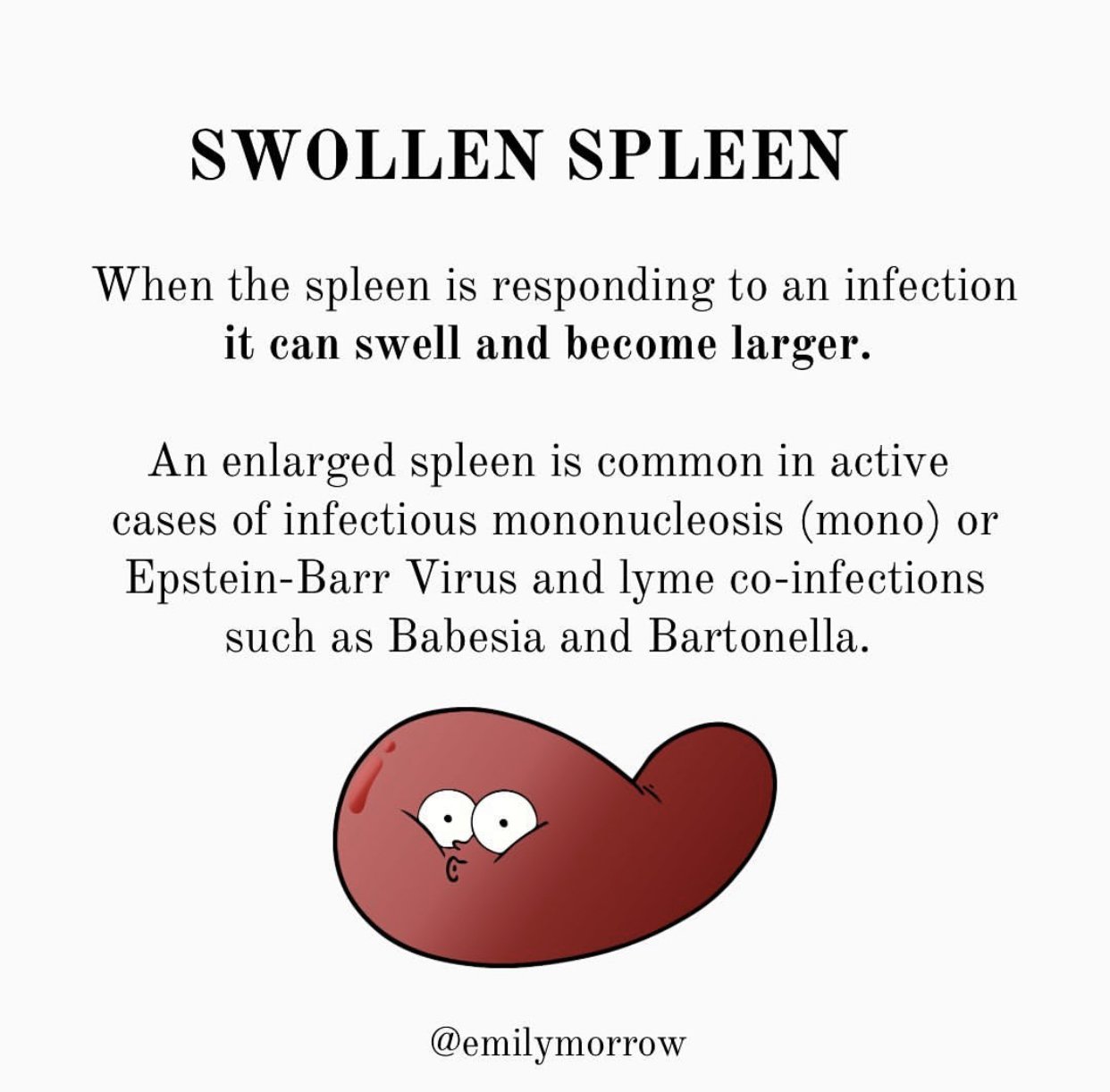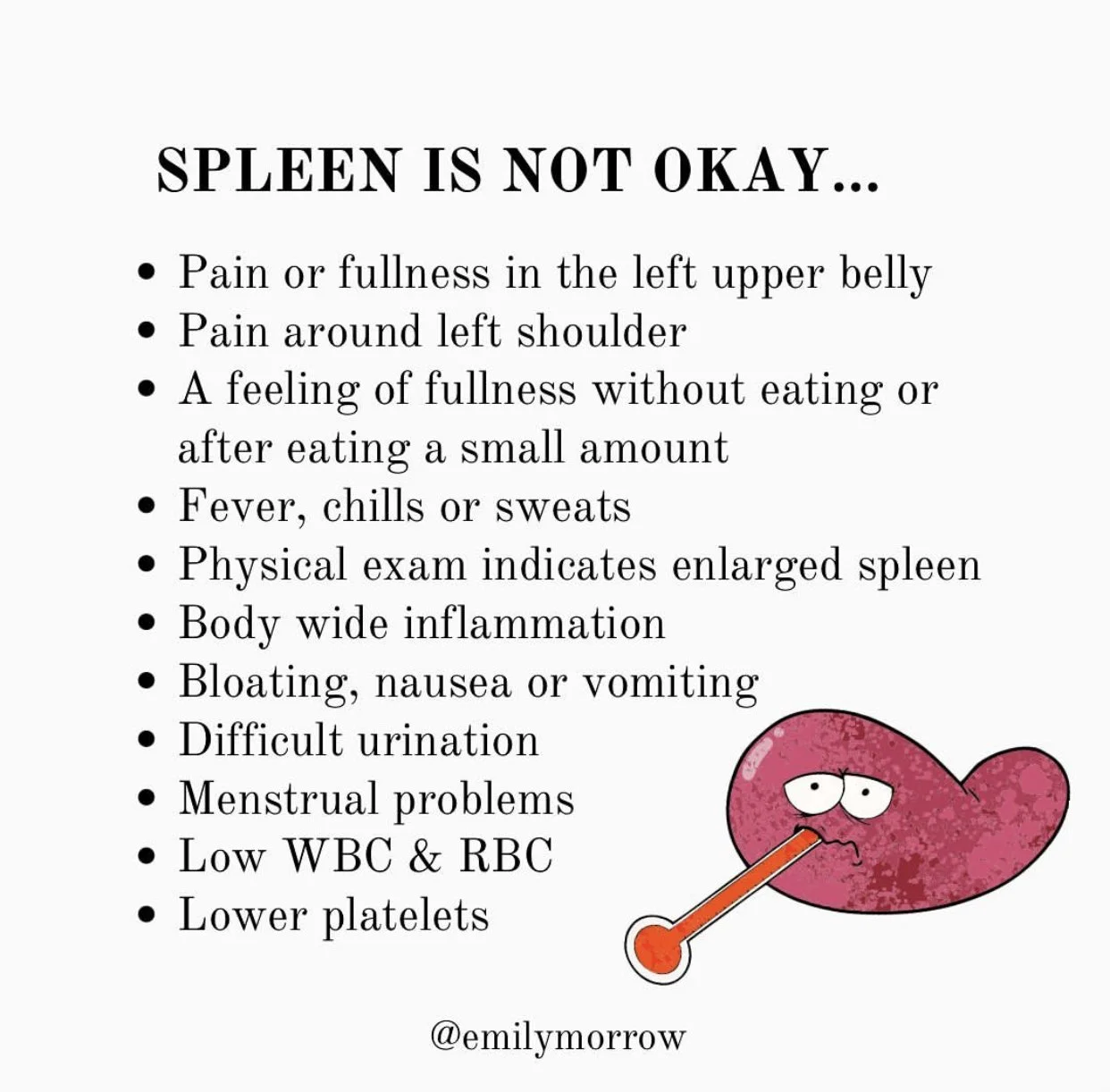The Spleen: Roles, Signs of Dysfunction & Support
The spleen is important for responding to infections. Lyme coinfections like bartonella and babesia, as well as viruses, can cause spleen issues and spleen enlargement. The spleen is an important organ to support in chronic illness and preventing future disease.
The Purpose of The Spleen
The spleen filters blood by removing cellular waste and getting rid of old or damaged blood cells, makes white blood cells and antibodies that help you fight infection and helps maintain fluid levels in the body. After splenectomy, other organs in your body take over most of the functions previously performed by your spleen. You can be active without a spleen, but there is an increased risk of becoming sick or getting serious infections.
Signs of Spleen Issue
A few symptoms of spleen issues include:
Feeling discomfort or pain behind your left ribs
Fatigue
Frequent, recurring infections
Easy bleeding and bruising
Indigestion or feeling uncomfortable when eating, especially after a large meal
Pain that has spread from the abdomen to the left shoulder
Spleen pain when taking deep breaths or moving around
Symptoms of jaundice (including yellowing of the skin)
A ruptured spleen is typically caused by a blow to the left upper abdomen or the left lower chest, such as might happen during sporting accidents, fistfights and car crashes; a ruptured spleen may cause:
pain behind your left ribs and tenderness when you touch this area
dizziness and a rapid heart rate (a sign of low blood pressure caused by blood loss)
sometimes if you lie down and raise your legs, you can feel the pain at the tip of your left shoulder
“Hepatosplenic” describes conditions that affect both the spleen and the liver
May see low WBC
May see low RBC or anemia
May see signs of hemolytic anemia and/or signs of immune deficiency
Diagnosis includes a combo of the following:
Ultrasound of the abdomen
CT scan of the abdomen
Specific blood tests for infections
Haematology consult and workup if haematological disorders are suspected
Causes of Spleen Issues
Here are a few things that may cause spleen problems:
Bacterial and Lyme Co-infections
There tends to be connections between lyme co-infections (Bartonella, Babesia, Mycoplasma, Ehrlichia, Anaplasma, etc.) with spleen issues
Viral infections, such as mononucleosis
Parasitic infections, such as toxoplasmosis
Endocarditis (an infection of the heart's valves)
Inflammatory diseases such as sarcoidosis, lupus, and rheumatoid arthritis
Sickle cell disease, in which the red blood cells are fragile and break easily
Spleen Supports
I recommend blood work to see what is causing spleen stress
Think of your spleen as a fire— it can help to avoid raw or super cold foods
The spleen governs the fascia and soft tissue in our body, so fascia work can help
Red Root— protects the spleen and lymphatic system*
Cordyceps Mushroom— has been shown to help those with bacterial infections which which cause spleen issues*
Spleen Tissue
Lower stress levels, which can decrease inflammation and lower infection risk
Lymphatic Support
Gua Sha, ELT Therapy, Foam Rolling, Fascia Work, Gua Sha, Massage, Cupping
Diet
Dr. Axe relays, “The best way to support your spleen and entire lymphatic and digestive systems is to eat a diet high in antioxidants, vitamins, minerals and essential fluids. This helps lower inflammation and fight free radical damage that can make an enlarged spleen turn into a worsened problem.
A healthy diet can benefit the entire body, including the spleen, which will work more efficiently to carry blood cells and nutrients to tissue, while also removing waste, when you obtain plenty of nutrients. A diet high in plant foods also helps provide enough hydrating water, which is important for helping the spleen rid itself and the body of excess fluids and foreign matter.
Try to avoid eating foods that place stress on your circulatory and immune systems. The more chemicals you obtain through the foods your eat, the more work your liver, spleen and other organs have to do. Foods to limit or eliminate from your diet include: common allergens (like dairy products, gluten, soy, shellfish or nightshades, for example), low-quality animal products, sugary snacks, refined vegetable oils (canola, corn, safflower, sunflower and soybean) and processed foods that contain chemical sprays or toxins.”
*A Doctor's advice should be sought before using any supplemental dietary product. These statements have not been evaluated by the FDA. These products and educational information is not intended to diagnose, treat, cure or prevent any disease.
A note on supplements: please do not buy just any supplements; please ensure they are good quality, preferably from an online dispensary or specialty grocery store.
References & Further Reading:
Do You Have an Enlarged Spleen? Warning Signs and 5 Treatments










